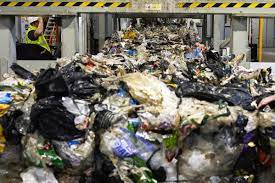
The European Union made a major breakthrough Friday in efforts to stop sending its plastic trash to poor countries.
Under a tentative agreement, the 27 EU countries will no longer be able to export their plastic waste outside the Organization for Economic Cooperation and Development club of wealthy countries.
The text now needs to be formally approved by both the council representing the EU member states and the EU Parliament to enter into force.
“The EU will finally assume responsibility for its plastic waste by banning its export to non-OECD countries,” said Pernille Weiss, the EU Parliament rapporteur. “Once again, we follow our vision that waste is a resource when it is properly managed, but should not in any case be causing harm to the environment or human health.”
The deal was announced as United Nations-led negotiations for a treat y aimed at cutting plastics pollution take place in Kenya.
After a period of five years following the introduction of the regulation, non-OECD countries will have the option to ask the EU Commission — the bloc’s executive arm — for the right to import plastic waste and the ban will be lifted if they prove they can treat it properly.
The EU Commission said negotiators agreed to set up a group to coordinate the action of member countries to make sure illegal shipments are detected and prevented.
According to EU data, the global production of plastic has grown from 1.5 million tonnes in 1950 to 359 million tonnes in 2018. As part of the Green Deal, 55% of plastic packaging waste should be recycled by 2030.




